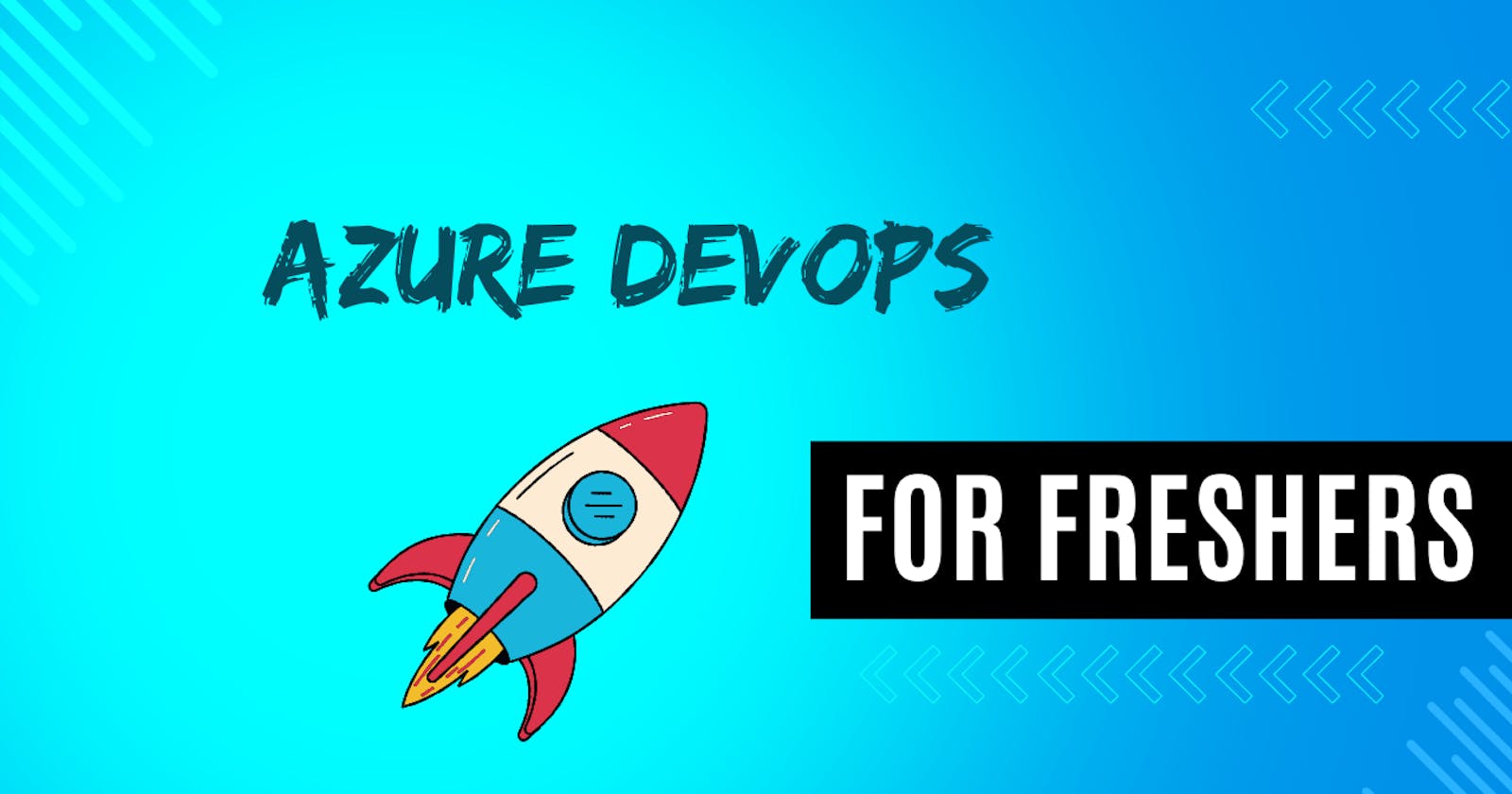Hey learners,
In the world of making computer programs and apps, working together and making things quickly is super important. Imagine if there was a magical set of tools✨ that could help developers and teams work together smoothly, make changes without breaking things, and get their creations out into the world faster. That's where DevOps comes in! DevOps is a culture, where Development and Operation teams work together and deliver their product faster with a few automation tools, technologies, and approaches.
This article delves into the intricacies of Azure DevOps and explores its key components that streamline software development, enhance team collaboration, and accelerate delivery.
Introduction to Azure DevOps:
Azure DevOps is a comprehensive set of development tools and services provided by Microsoft that aim to help software development teams plan, build, test, and deliver high-quality software efficiently. It provides a collaborative environment where development (creating software) and operations (making it work smoothly) teams can work together seamlessly, thereby fostering a DevOps culture.
🎯We will first understand the basic of it. We have a concept called Organization and Project.
In Azure DevOps, "Organization" and "Project" are two fundamental concepts that help structure and organize your software development efforts. Let's break down what each of these terms means:
Organization:
An "Organization" in Azure DevOps represents a higher-level container that encompasses all your projects, teams, and resources.
Think of it as the umbrella under which you manage multiple projects and collaborate with various teams. When you create an Azure DevOps Organization, you establish a centralized workspace where you can plan, track, and execute different software initiatives.
You can create multple organizations under one account.
Key Points about Organizations:
An Organization is a top-level entity in Azure DevOps.
It provides a space to manage multiple projects, teams, users, and resources.
Different departments, teams, or projects within your company can have their own separate Organizations.
You can customize settings, security, and access permissions at the Organization level.
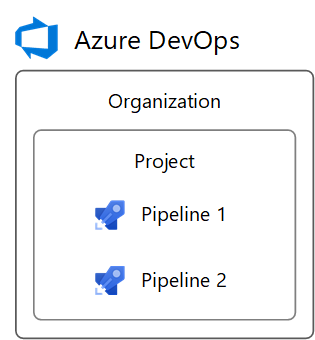
Project:
A "Project" within an Azure DevOps Organization is a more focused workspace that houses a specific software development endeavor.
It's where you plan, track, develop, test, and deploy your software solution. Each Project can have its own set of repositories, pipelines, work items, and other resources tailored to the project's requirements.
You can create multiple projects under one organization.
Key Points about Projects:
A Project is a sub-entity within an Azure DevOps Organization, focused on a specific software development effort.
It serves as a container for all the artifacts related to that project, such as source code, work items, and pipelines.
Different teams within an Organization can work on different projects simultaneously.
Each Project can have its own unique settings and configurations based on the project's needs.
Now let's understand the key components of Azure DevOps.
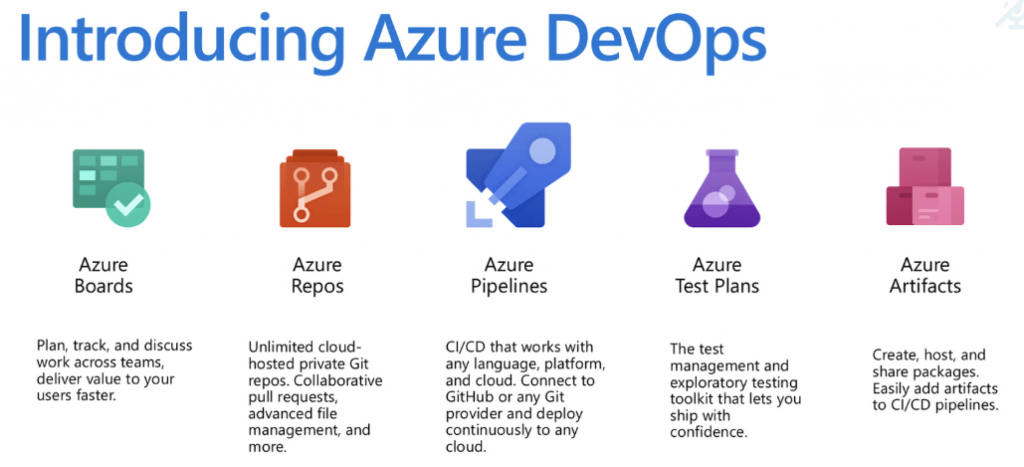
Azure Boards: Think of Azure Boards as a special to-do list for building apps. It helps teams plan what needs to be done, keep track of what's happening, and make sure everyone is on the same page. It's like planning a big school project with your friends and having a cool board to organize tasks, ideas, and goals.
It provides an agile project management platform that enables teams to plan, track, and manage their work. It offers customizable backlogs, sprint planning, work item tracking, and Kanban boards.
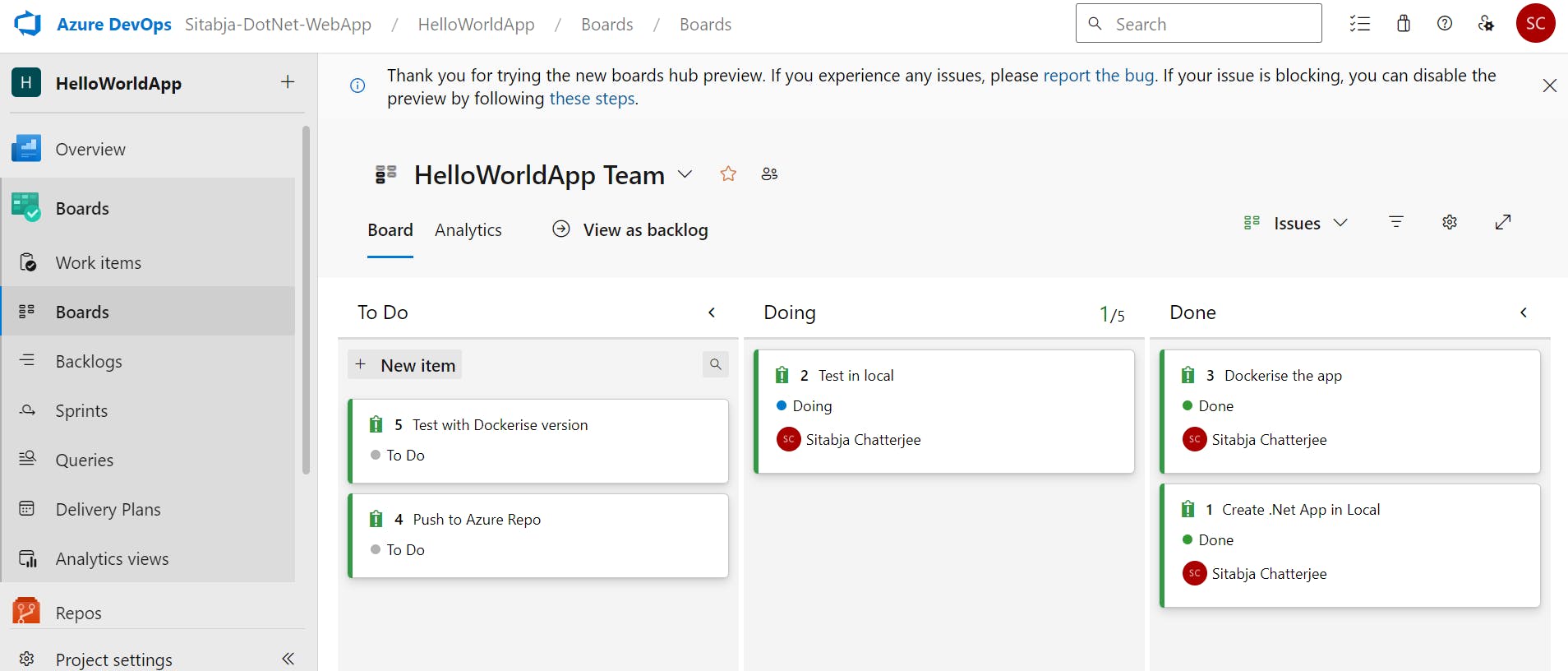
Azure Repos: Azure Repos takes charge of version control, securely housing, and managing source code. Supporting both Git and Team Foundation Version Control (TFVC), it offers distributed version control, pull requests, code reviews, and efficient collaboration.
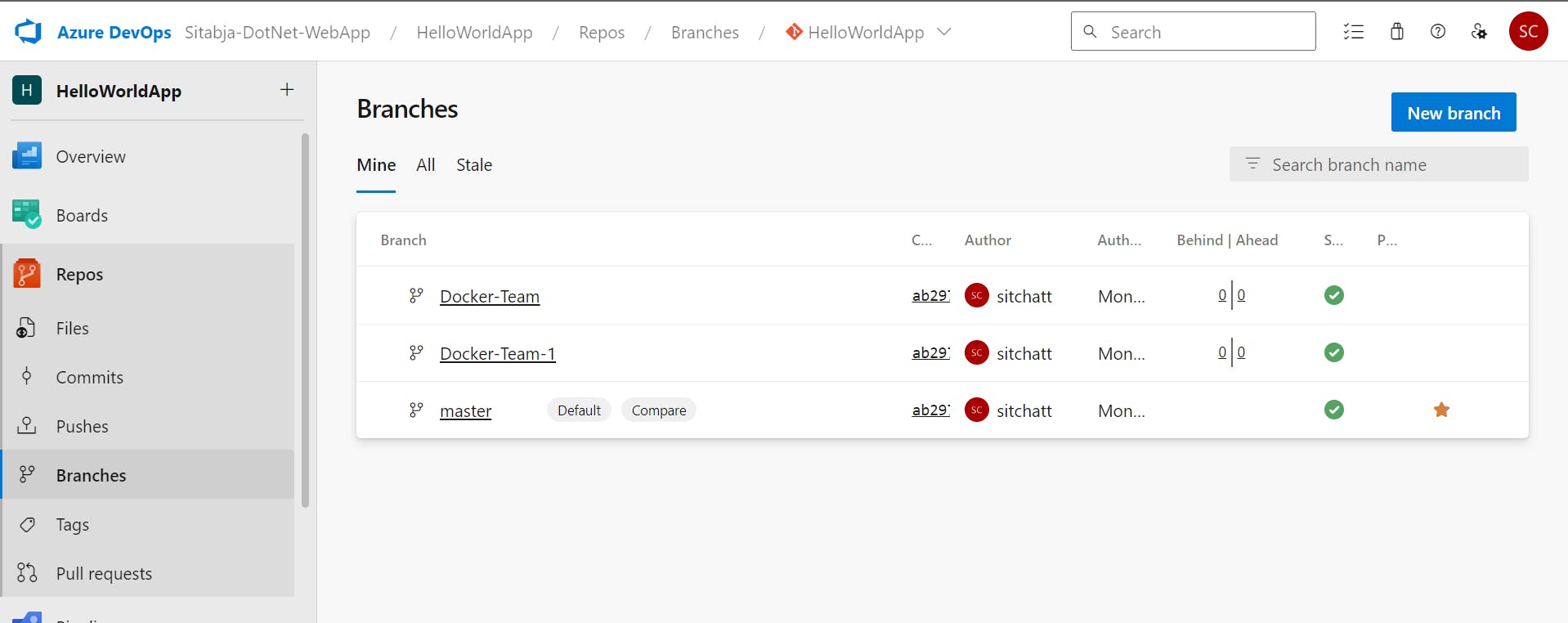
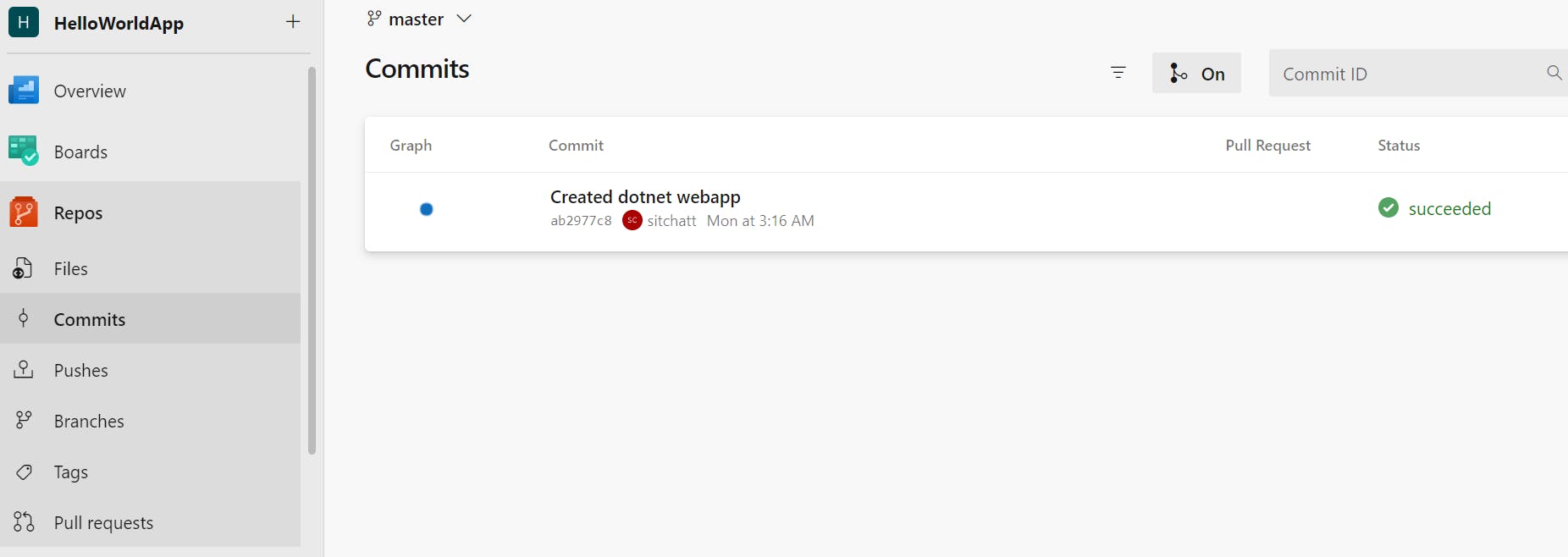
Azure Pipelines: Have you ever played a game where you have to follow a path and complete different levels? Azure Pipelines is like that path for computer programs. It helps in making sure the programs are tested, fixed, and put out into the world safely.
It helps in Automating the CI/CD process. Azure Pipelines also helps in building, testing, and deploying applications across diverse platforms and environments. Multi-stage deployments are also supported, simplifying intricate release workflows.

Azure Test Plans: Just like how you check if your final year project works before submitting it, developers check their programs to make sure they're awesome. Azure Test Plans is like a magical playground where developers test their creations and make sure they're super fun to play with and don't have any sneaky bugs.
Azure Test Plans encompasses comprehensive testing tools like test case management, exploratory testing, and automated testing. Integration of Azure test plans with Azure Pipelines enables automated testing, guaranteeing consistent and dependable application quality.
Azure Artifacts: Imagine you have special LEGO pieces that you and your friends use to build amazing structures. Azure Artifacts is like a place where developers keep these special pieces (called packages) so everyone can share and use them easily. It's like having a super organized treasure chest of cool building blocks.
It's compatible with various package types (NuGet, npm, Maven, Docker containers, etc), Azure Artifacts simplifies version control and promotes reliable artifact distribution.
Azure DevOps CLI and REST API: For the tech-savvy people as you who likes giving commands to robots, there's Azure DevOps CLI. It's like teaching your robot friend to do things by telling it exactly what to do. And REST API is like a secret language that helps different computer programs talk to each other and work together like best buddies.
Now the question is why should I learn Azure DevOps? I'm not actually against any other native cloud devops concept, even I do practice on AWS-based or Open Source DevOps tools, but there are a few exciting figures which can attract any techie person to learn and grow their carrier here.🤩
Job market :
The Azure DevOps job market is very strong in 2023.
According to Naukri.com, there are currently over 16,000 Azure DevOps job openings in India. The average salary for an Azure DevOps Engineer in India is ₹6.5 lakhs per year. Note, This is just an average considering junior level.

The number of Azure DevOps job openings in India has increased by 50% in the past year.
The demand for Azure DevOps Engineers in India is expected to grow by 30% in the next five years.
Conclusion:
Azure DevOps is a powerful platform that can help you to streamline your software development process and deliver better software faster. It is a cloud-based platform that offers a wide range of features, including continuous integration, continuous delivery, and release management.
The demand for Azure DevOps Engineers is growing rapidly, as more and more businesses adopt DevOps practices. If you are interested in a career in software development, Azure DevOps is a great skill to have.
So what are you waiting for? Start learning Azure DevOps today!🚀🚀 The future of software development is here, and Azure DevOps is the platform that can help you to succeed.

💖 Thanks for being with me till the end. I hope that I provided you with some useful knowledge. Don't forget to spread the blog to your friends and community. 💖
Feel free to ask any questions, I'm just a DM away.👍
